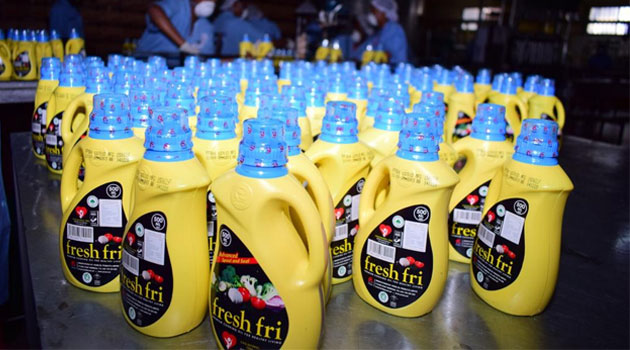Pwani Oil, the maker of Freshfri, Salit, and Fry Mate cooking oils, has temporarily shut down its oil facility due to a scarcity of raw materials, which it blames on its inability to pay suppliers on time due to a lack of dollars.

In the face of fierce worldwide competition, the consumer goods company stated Friday that its bankers were only processing half of the dollar orders it needed to pay suppliers of crude palm oil imports from Malaysia.
“Getting sufficient amount of dollars required to support the factory in terms of getting sufficient raw materials is not happening. We are not even running the plant right now because of lack of raw materials [crude palm oil],” Pwani Oil Commercial Director Rajul Malde said.
“We are competing for the same oil with the rest of the world and, therefore, prices are high. Added to that, we can’t pay on time so we don’t get priority in supply.”
Last week, Governor of the Central Bank of Kenya Patrick Njoroge dismissed concerns raised by the Kenya Association of Manufacturers (KAM) that persistent dollar shortages were leading to the emergence of a parallel exchange rate in which lenders buy and sell considerably above the printed official rate.
Dr. Njoroge stated that the foreign exchange market transacts roughly $2 billion in US currency per month, which he claims is sufficient to meet demand from importers and firms for dividend payments.
“At the moment, based on the inflows from banks, we are only able to source between $500,000 and $1 million a day against a requirement of $2- $2.5 million a day. So we are only getting half of what we need, sometimes even less than half,” Mr Malde said.
“Terms [of suppliers] are normally cash against documents. So when they ship a container out, they will send us copy of the documents and we need to pay to get those [original] documents to clear the cargo. Now that’s where the challenge is because if there isn’t enough dollars available, how do you pay and get the documents to clear?”
The situation, he said, has been compounded by stiff global competition for crude palm oil, which has exacerbated after Indonesia tightened its export rules to prioritise domestic needs.
Indonesia accounts for about a third of the global crude palm oil exports, which make up 60 percent of world’s edible vegetable oil shipments — others being soybean, sunflower and rapeseed oil.
That has left Malaysia as the main source of crude palm oil, the main raw material Pwani uses in manufacturing its cooking oil products like Fresh Fri and Salit.
“The situation can only improve if the dollar situation improves. And I am not seeing the dollar situation improving on its own without the central bank intervening and releasing some of the dollar reserves that they are holding to stablise the dollar demand in Kenya,” Mr Malde said.
“We are expecting one consignment [of palm oil] in the middle of this month and then after that there’s no more supply until the end of July. The one that is coming next month is dependent on dollar availability—whether we will be able to pay to release that cargo.”
Kenya’s foreign exchange reserves — which are largely tapped for debt payments and essential government imports such as medicines— last Thursday grew to $8.219 billion, or the equivalent of 4.89 months of import cover, from $8.177 billion a week earlier.
The official forex reserves, as published by the CBK, remain above Kenya’s statutory requirement of four months import cover and 4.5 months cover for the seven-nation East African Community bloc.
In April, KAM said banks had imposed caps on dollar purchases, making it difficult to obtain adequate forex to meet supplier obligatio









































